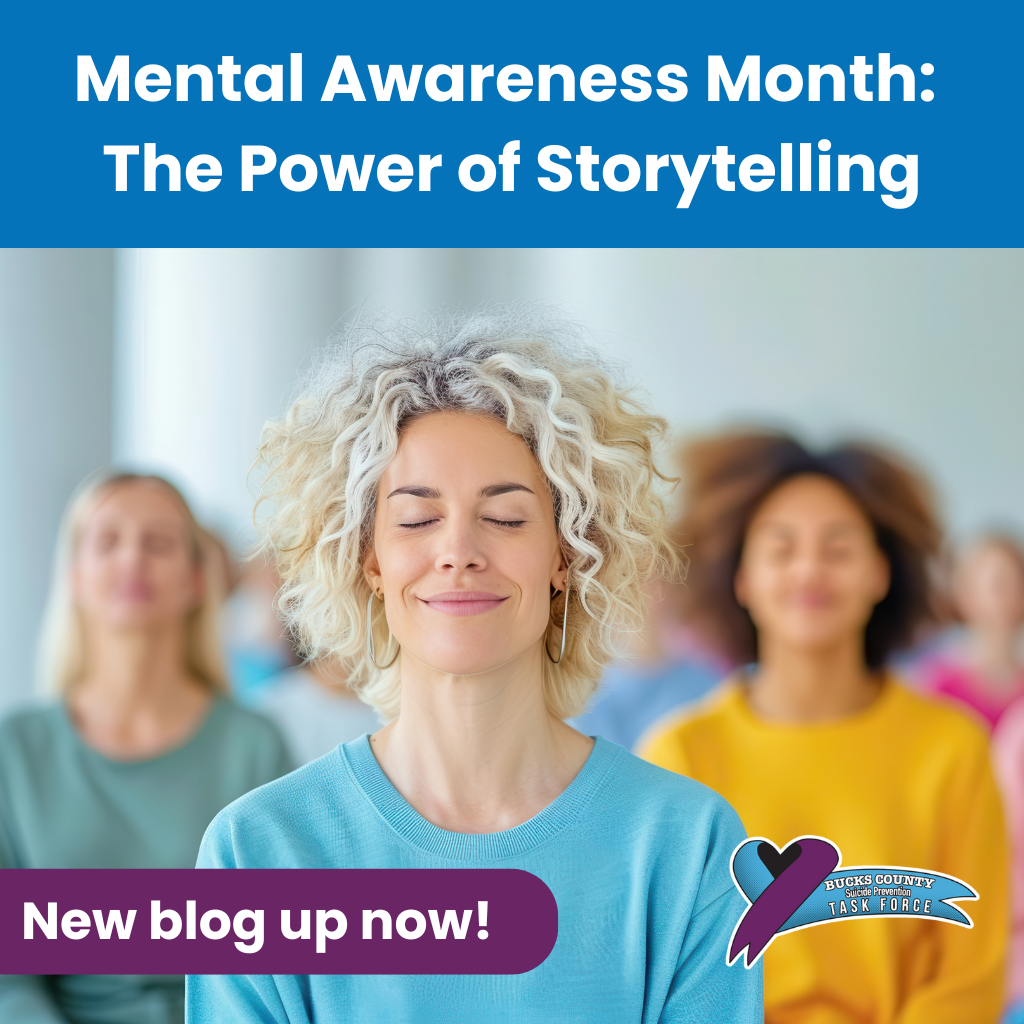Every May, Mental Health Awareness Month shines a crucial spotlight on mental well-being, reminding us that mental health is just as important as physical health. While public campaigns often focus on therapy access, self-care practices, and education, one powerful tool deserves special attention: storytelling. Sharing personal experiences can foster empathy, break down stigma, and even accelerate healing — not just for the storyteller, but for everyone who listens.
In a world where mental health struggles are still too often hidden behind closed doors, storytelling offers a bridge between isolation and connection. Here’s why the simple act of sharing a story holds such transformative power during Mental Awareness Month and beyond.
1. Breaking the Silence
For decades, mental health was shrouded in secrecy and shame. Those struggling with depression, anxiety, bipolar disorder, or PTSD often felt pressured to “suffer in silence” to avoid judgment. Storytelling disrupts this silence.
When someone shares their personal journey with mental health, it sends a powerful message: “You are not alone.” It validates experiences that listeners may be too afraid to articulate themselves. Storytelling transforms private struggles into shared human experiences, encouraging others to step out of the shadows and seek support without fear of shame.
2. Reducing Stigma and Misconceptions
Many misconceptions about mental health persist because people don’t have accurate or relatable information. Clinical statistics can feel cold and distant, but a personal story brings mental health struggles into vivid, relatable focus.
Hearing a story directly from someone who lives with a condition challenges stereotypes and prejudices. For example, a firsthand account of managing schizophrenia might counter the myth that those with the disorder are inherently dangerous. A story about thriving after depression can dismantle the false narrative that mental illness defines a person’s worth.
3. Fostering Empathy and Human Connection
Stories engage not just the mind, but the heart. Research shows that storytelling triggers brain activity linked to empathy, allowing listeners to emotionally connect with the storyteller’s experiences. This emotional resonance is crucial in mental health advocacy.
When you hear someone describe the isolation of anxiety attacks or the resilience it takes to live with PTSD, you don’t just know about it — you feel it. You become more understanding. This connection to real stories chips away at society’s stigmas, replacing fear, judgement, and misunderstanding with compassion and clarity.
In workplaces, schools, and communities, storytelling can lay the foundation for cultures that prioritize emotional well-being and inclusivity.
4. Empowering the Storyteller
Telling one’s story isn’t just beneficial for listeners — it profoundly empowers the storyteller. Many people living with mental health issues often feel defined by their diagnosis or experiences. Storytelling allows them to reclaim their narrative, giving them agency and dignity.
Articulating a journey, whether through a speech, a blog post, a podcast, or casual conversation, helps the storyteller process their experiences and recognize their strength and resilience. It turns past pain into a source of hope and inspiration, not only for others but for themselves.
In addition, being heard and validated is healing. It reminds storytellers that their experiences matter and that their voices can drive meaningful changes.
5. Creating Roadmaps for Others
For individuals currently struggling, hearing how someone else navigated their mental health journey can provide crucial guidance and hope. Storytelling offers real-world roadmaps: what treatments worked, how support systems were built, what setbacks occurred, and how obstacles were overcome.
These narratives can demystify the recovery process and give practical encouragement. Someone hearing about a peer’s experience with therapy or medication might feel less apprehensive about seeking help themselves. Stories transform the unknown into something tangible and navigable.
6. Diverse Voices Matter
It’s important to recognize that mental health experiences are deeply shaped by factors like race, culture, gender, and socioeconomic status. Therefore, amplifying a diverse range of voices is so important.
Mental Awareness Month should be an opportunity to listen to stories from marginalized communities, whose experiences are often overlooked. Diversity in storytelling ensures that everyone sees themselves reflected and acknowledged, and it uncovers systemic barriers that must be addressed to create truly equitable mental health support systems.
7. How to Share Your Story Safely
While storytelling is powerful, it’s also personal — and sometimes vulnerable. If you’re considering sharing your mental health journey, keep these tips in mind:
• Set Boundaries: Decide in advance what you’re comfortable sharing and what you wish to keep private.
• Prioritize Your Well-Being: If recounting certain experiences feels too triggering, it’s okay to wait or seek support while sharing.
• Focus on Empowerment: You are not obligated to share graphic or traumatic details unless you choose to. Focus on what feels authentic and empowering for you.
• Respect Others’ Privacy: If your story involves others, be mindful not to reveal information that could harm their privacy.
Above all, remember that storytelling is a choice and not a duty. Sharing can be powerful, but protecting your mental health comes first.
8. Celebrating Storytelling All Year Long
While Mental Awareness Month brings extra attention to the power of storytelling, its benefits aren’t limited to one month. Throughout the year, initiatives like mental health podcasts, open-mic nights, blogs, community panels, and social media campaigns continue to highlight the importance of personal narratives.
Supporting these platforms, sharing your story, or simply listening and amplifying others’ voices can make a lasting difference in normalizing mental health conversations.
During Mental Awareness Month, we are reminded of the importance of compassion, understanding, and advocacy for mental health. Storytelling stands out as one of the most effective tools we have for achieving these goals. Whether you choose to share your journey or simply listen to others’, remember that stories have the power to heal, inspire, and transform lives — including your own.
If you are looking for additional mental health support for yourself or a loved one, you can contact the National Suicide & Crisis Lifeline 24/7 at 988 Text. Find more local resources on our website.

